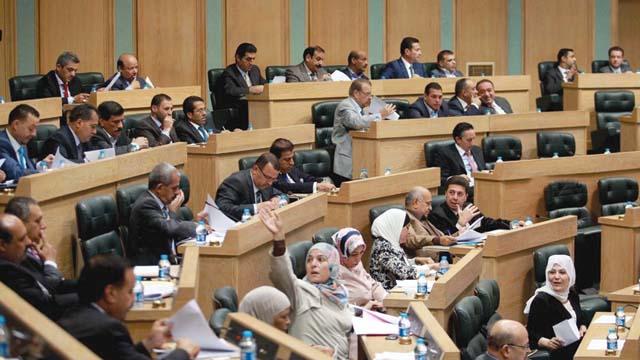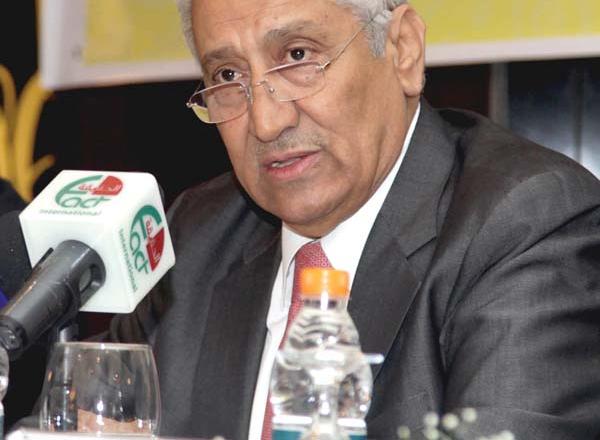You are here
Keeping army apolitical prevents ‘catastrophic’ results — Kalaldeh
By Raed Omari - Oct 27,2014 - Last updated at Oct 27,2014
AMMAN — The latest constitutional amendments are primarily meant to keep the army and other security bodies solely as national institutions away from the effects of politics, according to a senior official.
During a plenary session organised on Sunday by Friedrich-Ebert-Stiftung’s Amman office, Minister of Political and Parliamentary Affairs Khaled Kalaldeh said that “catastrophic” consequences always emerge when an army is involved in politics.
Kalaldeh’s remarks came in explanation of the reasons behind amendments to Article 127 of the Constitution, endorsed by Parliament in late August, which give the King the sole power to appoint and dismiss army and intelligence chiefs rather than upon a recommendation from the Cabinet.
The minister also explained that the unrest sweeping many Arab countries is the result of their armies’ intervention in politics. “In many of these countries, armies play political more than national roles.”
“Let’s not be romantic and let’s judge things with realism: A politicised army is a recipe for violence,” Kalaldeh, a long-time leftist, said.
He also noted that the Kingdom is moving gradually towards parliamentary governments; thus issues related to the army have to be left to the King to keep the “country’s largest institution away from the influence of politics”.
“Defending the country’s borders, its citizens and institutions is a sacred national duty that should not be politicised.”
MP Rula Hroub, another panellist, opposed the constitutional amendments, saying they were “hastily” endorsed and “came as a “blow” to the reform process.
“It is shocking that such major amendments were endorsed probably in a matter of three or four days.”
She said the Lower House should have engaged in extended dialogue with all segments of society, including political parties, professional associations, civil society organisations and legal experts, before passing the amendments.
Hroub noted that in fully fledged democracies, the army is under the supervision of the legislature, citing the US as an example.
“The congress there interrogates marshals and holds them accountable and also interferes in military plans.”
In democratic countries, parliamentary security committees are kept informed about all army affairs, from the appointment of chiefs to the budgets and arms deals, she pointed out.
“The constitutional amendments were meant... to increase the dominance of the executive authority over the legislature,” Hroub charged.
Responding to her remarks, Kalaldeh said the amendments were in the hands of deputies who could have engaged in dialogue with all segments of society.
“They [MPs] themselves chose to endorse them quickly. Lawmakers can also form security committees.”
The minister noted that Jordan is not yet a fully fledged democracy but is moving gradually towards democratisation, adding that “involving the army in politics at this critical stage is like sending the country to the unknown.”
On August 25, the Lower House endorsed the draft amendments to the Constitution by an overwhelming majority, giving the King the sole power to hire and fire army and intelligence chiefs.
The amendments also expand the powers of the Independent Elections Commission and restrict the mandate of the military to defence affairs.
On August 30, the Senate also passed the amendments by an overwhelming majority as referred from the Lower House.
Related Articles
The Lower House on Tuesday referred two constitutional amendments drafted by the government to its Legal Committee for further deliberations before it can endorse them.
Prime Minister Abdullah Ensour has said that the government has not discussed any draft of the new elections law, but will be ready with this key reform bill early next year, the Jordan News Agency, Petra, reported.
Lower House Speaker Atef Tarawneh on Wednesday said the House had "intensified" its efforts during the second extraordinary parliamentary session, which ended late September.


















